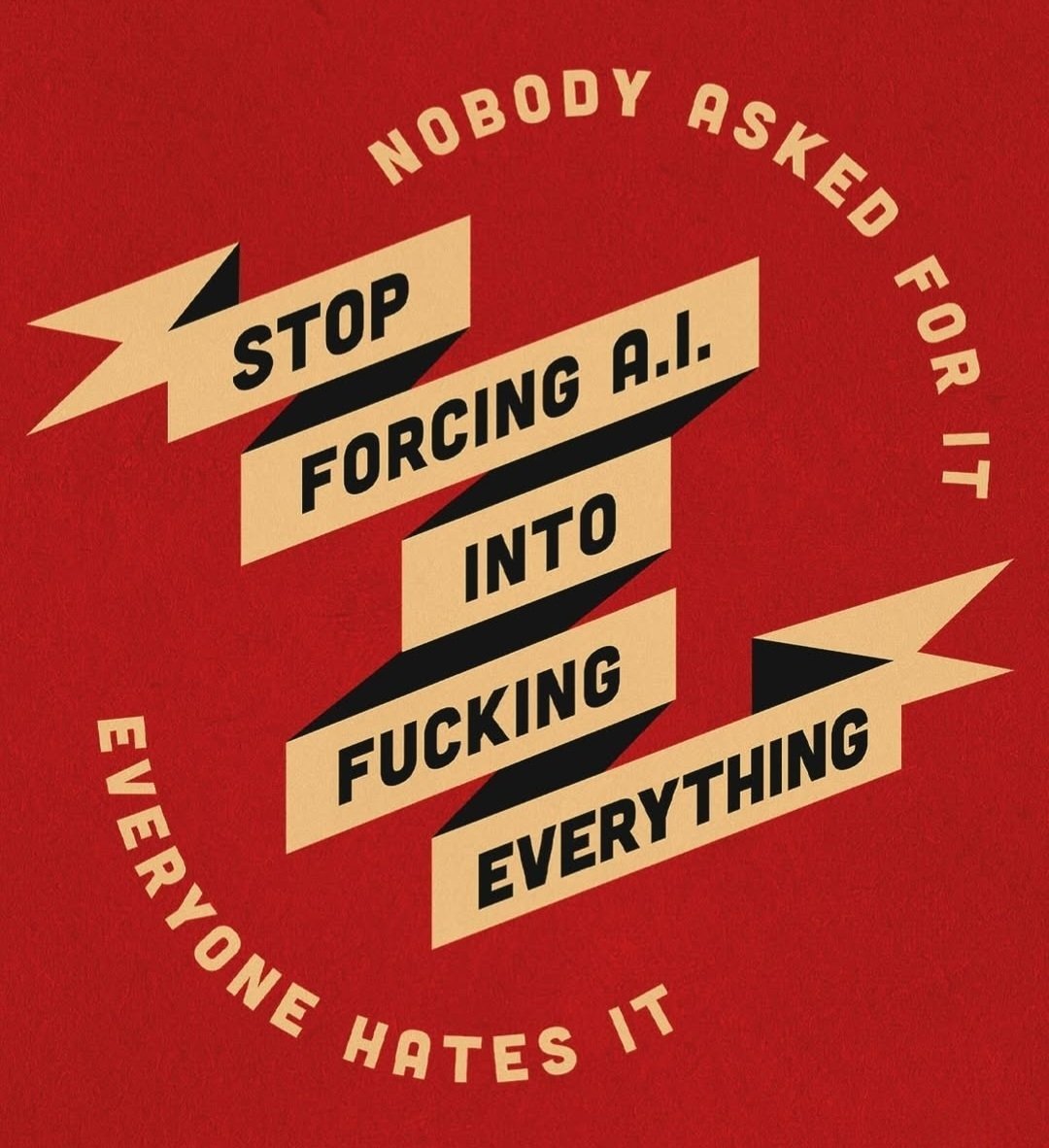this post was submitted on 30 Dec 2024
1443 points (97.2% liked)
memes
11046 readers
2166 users here now
Community rules
1. Be civil
No trolling, bigotry or other insulting / annoying behaviour
2. No politics
This is non-politics community. For political memes please go to [email protected]
3. No recent reposts
Check for reposts when posting a meme, you can only repost after 1 month
4. No bots
No bots without the express approval of the mods or the admins
5. No Spam/Ads
No advertisements or spam. This is an instance rule and the only way to live.
Sister communities
- [email protected] : Star Trek memes, chat and shitposts
- [email protected] : Lemmy Shitposts, anything and everything goes.
- [email protected] : Linux themed memes
- [email protected] : for those who love comic stories.
founded 2 years ago
MODERATORS
you are viewing a single comment's thread
view the rest of the comments
view the rest of the comments

I think there's specific industrial problems for which AI is indeed transformative.
Just one example that I'm aware of is the AI-accelerated nazca lines survey that revealed many more geoglyphs that we were not previously aware of.
However, this type of use case just isn't relevant to most people who's reliance on LLMs is "write an email to a client saying xyz" or "summarise this email that someone sent to me".
One of my favorite examples is "smart paste". Got separate address information fields? (City, state, zip etc) Have the user copy the full address, clock "Smart paste", feed the clipboard to an LLM with a prompt to transform it into the data your form needs. Absolutely game-changing imho.
Or data ingestion from email - many of my customers get emails from their customers that have instructions in them that someone at the company has to convert into form fields in the app. Instead, we provide an email address (some-company-inbound@ myapp.domain) and we feed the incoming emails into an LLM, ask it to extract any details it can (number of copies, post process, page numbers, etc) and have that auto fill into fields for the customer to review before approving the incoming details.
So many incredibly powerful use-cases and folks are doing wasteful and pointless things with them.
If I'm brutally honest, I don't find these use cases very compelling.
Separate fields for addresses could be easily solved without an LLM. The only reason there isn't already a common solution is that it just isn't that much of a problem.
Data ingestion from email will never be as efficient and accurate as simply having a customer fill out a form directly.
These things might make someone mildly more efficient at their job, but given the resources required for LLMs is it really worth it?
Well, the address one was an example. Smart paste is useful for more than just addresses - Think non-standard data formats where a customer provided janky data and it needs wrangling. Happens often enough and with unique enough data that an LLM is going to be better than a bespoke algo.
The email one though? We absolutely have dedicated forms, but that doesn't stop end users from sending emails to our customer anyway - The email ingestion via LLM is so our customer can just have their front desk folks forward the email in and have it make a best guess to save some time. When the customer is a huge shop that handles thousands of incoming jobs per day, the small value adds here and there add up to quite the savings for them (and thus, value we offer).
Given we run the LLMs on low power machines in-house ... Yeah they're worth it.
Yeah, still not convinced.
I work in a field which is not dissimilar. Teaching customers to email you their requirements so your LLM can have a go at filling out the form just seems ludicrous to me.
Additionally, the models you're using require stupid amounts of power to produce so that you can run them on low power machines.
Anyhow, neither of us is going to change our minds without actual data which neither of us have. Who knows, a decade from now I might be forwarding client emails to an LLM so it can fill out a form for me, at which time I'll know I was wrong.